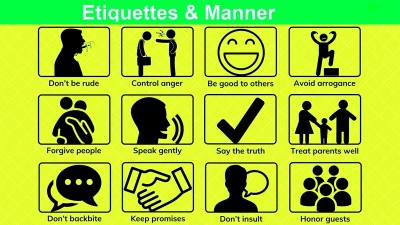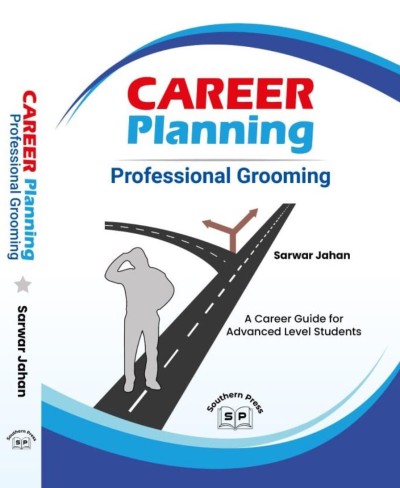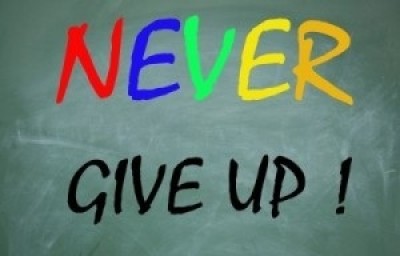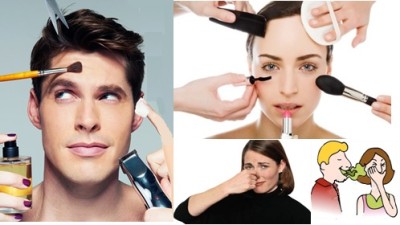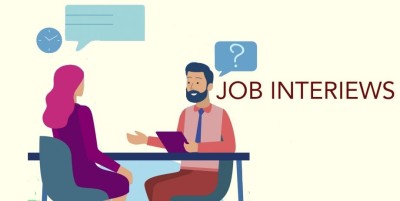Course description
Chapter 11.
Etiquettes/Manner
Etiquettes: Etiquettes is a set of rules of behavior that delineates expectations for social behavior various parts of the world follow. These 'rules' are little things that tell you what is proper.
Etiquette is made up of social norms which evolve with repeated behaviors that are accepted within a society. Although certain rules of etiquette are universally accepted worldwide, many socially accepted behaviors vary in different countries because they are influenced by different cultures and customs. It is important for people to be familiar with the basic rules of etiquette that are expected in all cultures. One of the most fundamental pieces of etiquette is common courtesy. Whether discussing personal or business relationships at home or abroad, it is expected that common courtesy is extended to and among people. Common courtesy includes, but is not limited to, saying “please,” “thank you,” “excuse me” and other phrases that portray basic politeness. Another basic rule of etiquette is holding the door. In addition to men holding the door for women, it is expected that all people hold the door when the time is appropriate. Some examples are holding the door for an elderly person or holding the door for someone who is carrying groceries or shopping bags. Good behavior which distinguishes human from animals.
Manners: Manners are what you do in a specific way to be polite, courteous, etc. showing proper manners means making the person around you not feel bad. Ex: You say please and thank you show good manners.
Manners are a set of behaviors which mark someone as a civilized and cultured. Manners are usually taught from a very young age, Manners pertain from everything from how to introduce people to how to eat. Good manners involve treating people with respect and courtesy, and in making sure that other people feel comfortable in a variety of situations.
How Manners Affect Our Lives Today
Manners are universal. Every society throughout the world has a code of conduct by which standards are set for what is considered to be acceptable behavior. Etiquette equates to having traffic signals at intersections. Without proper signals, traveling would turn into utter chaos. Manners are one of the most important ingredients for success in today’s global economy. We have moved from roles to relationships. In today’s society, your behavior and intelligence determine where and how far you will go in life. Soft skills are often more important than technical experience. Hiring, firings and promotions are often based on manners. “Business Boot Camps” for college grads and “Lunch for Success” classes are popping up in cities all across America. Courses in etiquette and protocol are becoming popular tools for success. Manners are the great equalizer.
Manners Shape Character
Manners are empowering and are an integral part of success. Having good manners helps an individual build confidence, increase self esteem, and improve communication skills. Good manners and etiquette help people make friends more easily and create positive impressions on others. We only have one chance to make a first impression! Manners provide an extra edge that will make the difference between you and the other person. Additionally, etiquette and protocol provide the guidelines for individuals to manage social and business environments effectively. Equally important, manners create civility which helps people resolve conflict and confrontation without aggression. Practicing good manners earns respect. When we feel confident in social situations, we are able to relax, put our best foot forward and enjoy ourselves.
Etiquette is all about presenting yourself with the kind of polish that shows you can be taken seriously. Etiquette is also about being comfortable around other people, and making them comfortable around you.
Proper etiquette is much more than just eating properly . Many people may feel that if you can’t properly present yourself in business and social situations, you may lack the judgment and self-discipline to be trusted with other responsibilities.
No matter what is the situation, Etiquette rules should be followed all the time. EVERY SITUATION we should be aware of manners?
Why Are Etiquettes Important
• Professional Etiquette influences success as it differentiates people in a competitive market..
• People who have proper etiquette move up the ladder faster & get rewarded better.
• Without etiquette, you limit your potential, risk your image, jeopardize relationships that are fundamental to business success.
Benefits of etiquette…
• Gives professionals the tools to impress others
• It puts others at ease so that business can be conducted.
• Helps to establish relationship with others more easily.
• Builds confidence and helps create a winning style.
• Gives the organization an overall polished, professional image.
Polite Rules
1.Always use the “magic words”-Please, Thank You, and You’re Welcome
2.Never say Bad words OR curse words
3.Always try to be kind to others
4.Never grouchy
5.Don’t speak of yucky or gross things
Types of Etiquettes:
1. Eating Etiquettes
2. Telephone Etiquettes
3. Business Etiquettes
4. Social Etiquettes
5. Etiquettes
Self-Introductions etiquette
• When you are speaking with someone you know and someone new approaches, always make an introduction.
• Give a piece of information about the person—it can be a conversation starter.
• LISTEN to and concentrate on conversations—don’t just wait for your turn to talk!
• Don’t Jump! Resist the urge to jump into a conversation when someone pauses in thought. Wait a second or two, then respond.
Smile!
• Be an active listener—smile, nod, make eye contact and agree when appropriate.
Space
• Respect a person’s personal space—don’t get too close! If you can smell lunch on their breath—you may be too close!
• Give them a breath mint!
Build your vocabulary!
• Avoid vulgar(rude) references and swear words.
• Poor language IS NOT professional and offends some.
Don’t ask personal questions!
Like…
How much did that cost?
Why did they divorce?
Did you get a raise?
Conversation
LISTEN to and concentrate on conversations—don’t just wait for your turn to talk!
Don’t Jump!
• Resist the urge to jump into a conversation when someone pauses in thought. Wait a second or two, then respond.
Internet culture
• While our Internet culture is full of shorthand, check your e-mail for grammatical, capitalization and spelling errors! In business—no shorthand!
• ALWAYS respond to a real message on your e-mail.
• Say “you’re welcome” rather than “no problem.”
• and always…
Smile
A smile is a facial expression formed by flexing the muscles near both ends of the mouth. The smile can also be found around the eyes. Among humans, it is an expression denoting pleasure, joy, happiness, or amusement, but can also be an involuntary expression of anxiety, in which case it is known as a grimace. Smiling is something that is understood by everyone despite culture, race, or religion; it is internationally known. Cross-cultural studies have shown that smiling is a means of communicating emotions throughout the world. But there are large differences between different cultures. A smile can also be spontaneous or artificial.
The act of smiling
From a friendly smile to a more romantic smile, there are many different smiles and different ways the act of smiling can be done. “Smiles can communicate feelings as different as love or contempt, pride or submission, flirtatiousness or polite tolerance.” The act of smiling may often be induced by showing kindness. To give someone something to smile about, we might take someone’s mind off their problems by conversing with them, giving them some attention, or even telling them a joke. Next time you want to put a smile on someone’s face, either perform an act of kindness or think of a stress reliever.
Why Smile
1. Smiling Makes Us Attractive
2. Smiling Changes Our Mood
3. Smiling Is Contagious
4. Smiling Relieves Stress
5. Smiling Boosts Your Immune System
6. Smiling Lowers Your Blood Pressure
7. Smiling Releases Endorphins, Natural Pain Killers and Serotonin
8. Smiling Lifts the Face and Makes You Look Younger
9. Smiling Makes You Seem Successful
10. Smiling Helps You Stay Positive
Handshake
• Keep thumb up and touch webs before wrapping the fingers around the other person’s hand.
• Firm, but not bone-crushing / stop crisply during the handshake
• Do not continue through the entire introduction
• Always shake hands with your right hand.
• A handshake should be brief, and accompanied by a smile. Look the person directly in the eye and use words such as “how do you do?” and “pleased to meet you.”
• Lasts about 5 seconds
• Released after the shake, even if the introduction continues Includes good eye contact with the other person
• Do not squeeze another person’s hand as this may cause discomfort if one person is wearing sharp jewelry.
• Some people may not offer their hands due to religious beliefs, a smile and sign is enough.
• Do not offer a wet or dirty hand.
• On formal business occasions and in public, it is inappropriate any other form of body contact greeting other than a handshake.
• First-name terms in the workplace are acceptable providing that you give due respect to superiors, in terms of posture and body language.
• Younger person to older person
• Male to female
• New friend to old friend
• Employee to boss
• Student to teacher
• Friends to parents
Etiquette in the modern work place
Office Etiquette or Office Manners is about conducting yourself respectfully and courteously in the office or workplace. Good Manners - courtesy & consideration are prime necessity if any office is to function with a minimum anxiety & stress.
1. First impressions are important! You are the ambassador/s of the business. Always act with honesty and dignity.
2. Chewing gum in the presence of co-workers is neither cool nor dignified
3. Never do it whilst attending customers
4. Wear appropriate office attire, for example correct footwear, not thongs (flip flops) - they are strictly casual or beachwear
5. No exposed midriff to display tattoos and body piercing.
6. Be neat, clean and as conservative as the business requires you to be
7. We are put off by smelly people. So, be sure to shower regularly and use a suitable deodorant
8. Do not cough or sneeze in anyone's direction. Use a tissue, if possible, to contain the germs and then say "Excuse me"
9. The essence of good manners and etiquette is to be respectful and courteous at all times and with everybody
10. Therefore, treat your co-workers, cleaners, maintenance people and others with respect and courtesy
11. Good office etiquette is easily achieved by using common courtesy as a matter of course
12. Keep your interruptions of others to a minimum and always apologies if your intrusion is an interruption of a discussion, someone’s concentration or other activity
13. Show respect for each other’s workspace. Knock before entering
14. Show appreciation for the slightest courtesies extended to you
15. Be helpful and co-operative with each other
16. Brush up on your computer skills so that you can help others
17. Aim to improve your other workplace skills and attributes
18. Speak clearly without shouting. Loud people are a vexation
19. Say, “Please; Thank you; You’re welcome”, as part of your everyday courtesy
20. Be discreet and compassionate in your criticism of a co-worker
21. Don’t gossip about any co-worker’s private life
22. Do not try to sell things to your colleagues
23. Don’t hover around while waiting for a co-worker to get off the phone. Leave a note for them to call return later
24. Avoid sexist comments about a co-worker’s dress or appearance
25. Don't be a know-all
26. Take responsibility for your mistakes, apologies and go about correcting the mistakes
27. Apologies if you are clearly in the wrong. If in doubt, apologies anyway. It’s no big deal
28. Never blame someone else if it is your mistake
29. If your boss criticizes your work, enquire about what precisely is wrong with it. Consider the comments, discuss them amiably if you disagree with the comments but defer to the bosses opinion if he/she is adamant
30. The boss always gets the benefit of the doubt. Don’t argue with the boss (however, there are standards of etiquette for employers too.
31. Make new employees feel welcome and comfortable around you. Don't be a busy-body
32. Office etiquette means being thoughtful when interacting with your peers
33. Keep your work area tidy. Try not to be messy
34. Show consideration for other people’s feelings
35. If there is conflict, do not get personal in your remarks
36. It is extremely rude to arrive late for a meeting
37. It is ruder still to not attend at all. Having a good excuse does not exonerate you
38. Do not dominate the meeting. All communication must take place through the chairperson
39. Do not interrupt another speaker
40. Pay attention to the proceedings quietly. Don’t shuffle your papers
41. Do not leave the meeting until it is closed by the chairperson
42. Never be petty or small minded in your behavior
43. Always be particularly respectful to those older than yourself even if they are junior to you in position
44. Your elders are generally more mature in judgment and life’s experiences and this deserves your respect even in the workplace
45. Practice good manners and office etiquette at every opportunity; even in the toilet
46. ‘Mute’ your cell phone in the office. No fancy OR EXOTIC ring tones
Office machine etiquette:
o Try to understand how to operate the equipment if is to be self operated as in the case of a photocopying machine.
o Keep the equipment clean.
o If there is a line of people waiting to use the system, and you have dozens of pages to copy, allow the colleagues who have only a few pages to copy to go ahead of you.
o If yours is a urgent job, explain the situation to waiting executives and get their approval in a polite manner to go ahead with your job.
Holding doors :
o In today’s office buildings, the person who arrives at the doors first- man or woman- holds the door for the person(s) behind.
o Young people, however, should differ to older or senior executives.
o In fact, the younger is expected to get to the door quickly in order to hold it for the others.
• At an elevator, those in the elevator should get off before anyone else get on.
Sexual Harassment
SEXUAL HARASSMENT is a behavior. It is defined as unwelcome behavior of a sexual nature. For example, a man whistles at a woman when she walks by. Or a woman looks a man up and down when he walks towards her Unwelcome sexual advances, requests for sexual favors, and other verbal or physical conduct of a sexual nature when:
· Submission to such conduct is made either explicitly or implicitly a term or condition of an individual's employment, or
· Submission to or rejection of such conduct by an individual is used as a basis for employment decisions affecting such individual, or
· Such conduct has the purpose or effect of unreasonably interfering with an individual's work performance or creating an intimidating, hostile, or offensive working environment.
Unwelcome Behavior is the critical word. Unwelcome does not mean "involuntary." A victim may consent or agree to certain conduct and actively participate in it even though it is offensive and objectionable. Therefore, sexual conduct is unwelcome whenever the person subjected to it considers it unwelcome. Whether the person in fact welcomed a request for a date, sex-oriented comment, or joke depends on all the circumstances.
Sexual harassment includes many things...
· Actual or attempted rape or sexual assault.
· Unwanted pressure for sexual favors.
· Unwanted deliberate touching, leaning over, cornering, or pinching.
· Unwanted sexual looks or gestures.
· Unwanted letters, telephone calls, or materials of a sexual nature.
· Unwanted pressure for dates.
· Unwanted sexual teasing, jokes, remarks, or questions.
· Referring to an adult as a girl, hunk, doll, babe, or honey.
· Whistling at someone. · Cat calls. · Sexual comments.
· Turning work discussions to sexual topics. · Sexual innuendos or stories.
· Asking about sexual fantasies, preferences, or history.
· Personal questions about social or sexual life.
· Sexual comments about a person's clothing, anatomy, or looks.
· Kissing sounds, howling, and smacking lips.
· Telling lies or spreading rumors about a person's personal sex life.
· Neck massage. · Touching an employee's clothing, hair, or body.
· Giving personal gifts.
· Hanging around a person.
· Hugging, kissing, patting, or stroking.
· Touching or rubbing oneself sexually around another person.
· Standing close or brushing up against a person.
· Looking a person up and down (elevator eyes).
· Staring at someone.
· Sexually suggestive signals.
· Facial expressions, winking, throwing kisses, or licking lips.
· Making sexual gestures with hands or through body movements.
Examples VERBAL
· Referring to an adult as a girl, hunk, doll, babe, or hone
· Whistling at someone, cat calls
· Making sexual comments about a person's body
· Making sexual comments or innuendos
· Turning work discussions to sexual topics
· Telling sexual jokes or stories
· Asking about sexual fantasies, preferences, or history
· Asking personal questions about social or sexual life
· Making kissing sounds, howling, and smacking lips
· Making sexual comments about a person's clothing, anatomy, or looks
· Repeatedly asking out a person who is not interested
· Telling lies or spreading rumors about a person's personal sex life
NON-VERBAL
Looking a person up and down (Elevator eyes)
Staring at someone
Blocking a person's path
Following the person
Giving personal gifts
Displaying sexually suggestive visuals
Making sexual gestures with hands or through body movements
Making facial expressions such as winking, throwing kisses, or licking lips PHYSICAL
Giving a massage around the neck or shoulders
Touching the person's clothing, hair, or body
Hugging, kissing, patting, or stroking
Touching or rubbing oneself sexually around another person
Standing close or brushing up against another person
http://www.un.org/womenwatch/osagi/pdf/whatissh.pdf
Telephone Etiquette
Telephone etiquette means being respectful to the person you are talking with, showing consideration for the other person's limitations, allowing that person time to speak, communicating clearly and much, much more. Your voice must create a pleasant visual impression over the telephone. Good phone etiquette is important because we cannot see the facial expressions and body language of the other person and they cannot see us. We must compensate by choosing our words carefully and using much more tone inflection to convey our message than if we were face to face. Sadly, despite this, billions of dollars are spent annually on the various means of excluding the human factor from communication. We regularly have to deal with impersonal recorded messages on voice mail that direct us to select a number from a menu or to leave a recorded message.
This is becoming standard business practice and a challenge to good phone manners when we are finally able to talk to a person. Rudeness and a lack of consideration have surreptitiously crept into our telephone practices and in many cases we are unaware of this. The principles apply equally to cell phone (mobile phone) communication. Mobile phones are just that.
They are mobile, and place you in environments where your phone and your conversation are not welcome and may even be considered offensive.
Telephone call…
• If you’re making a call, identify yourself first, then ask to speak to the person you’re trying to reach.
• When you finally reach the person… Before you jump into a deep conversation, ask if they have time to talk.
• If you’re on the phone and another call comes in… Always ask if it’s alright to put them on hold.
• When you are in ANY meeting, turn off your cell phone ringer—accept voicemail and text messaging only!
• If you MUST take a call in a public place—try to move to a more private space.
• Hearing one-sided conversations alienates the person NOT in the conversation!
• If you must talk in a public place (bus, elevator, airplane etc.) keep it short and discreet.
Some Basic Guidelines
· Identify yourself when making a call
· Address the caller by his name in a courteous manner
· Keep conversation brief
· Never be rude
· Never be impatient
· Listen carefully
· Do not interrupt
· Do not eat or chew something while speaking on phone
· If you wish to put the caller on hold, request his/her permission to do so
· Close your conversation with an appropriate salutation
· Let the caller hang up first
· When you receive a call, pick up the phone within three rings
· Answer the call
· In case of missed calls, return the call within a reasonable period of time
While Speaking
· Prepare and plan the contents and sequence of your communication/conversation
· Speak slowly
· Pronounce words correctly
· Don't mumble, speak clearly
· Use good mannerly language
· Don't be crude in your expressions
· Use appropriate salutations at appropriate times during the conversation
· Use phrases/words like: I appreciate your assistance, Thank you, May I request you, etc
Placing Call on Hold
· Request caller if you can keep on hold
· Show courtesy in your communication
· In case it is taking long time, keep coming back to caller and tell reasons of the delay
· Tell the duration of wait time or delay and ask caller if he will like to be put on hold for that much duration
· Offer to call back if the delay is more and caller does not want to be put on hold for that long
Wrong Numbers
· If you reach a wrong number and you are told that it was a wrong number, express regret
· If someone calls you by mistake, inform the caller politely that he reached a wrong number
· In case the caller has reached you while trying to reach another person in your organization, help him out by giving the correct phone number if you can find out or transfer the call to the right person
Managing Angry Callers
· Listen his problem or complaint carefully
· Do not interrupt him, let him finish the whole thing first
· Do not show off or act smart
· Do not say, "you are wrong"
· Empathize with him
· After he has finished, if appropriate, you may use the expressions like: I am sorry for the inconvenience or I appreciate what you are saying and in your place I would have been upset too
· You should be good in your area of work and investigate about his complaint or problem and solve it
· If you cannot solve immediately, tell him the process of solving the problem and how much time it would take to solve
· Do not mislead him
· Call him back when you have the solution/information and give him that communication at the earliest possible; this feedback is important
Cell Phone Etiquette
· Do not try to impress the people around by flaunting your latest gizmo
· Do not use annoying, disturbing, jarring, funny ring tones
· Respond within three rings
· Don't shout over phone.
· Your volume level of speech should be such that it does not disturb the public
· Do not wear the ear piece when not using your cell phone
· Switch off cell phone or keep it at vibrate or silent mode at public places like school/college class room, hospital, theater, cinema hall/multiplex etc
· Switch off completely while traveling on an airplane
· Do not use cell phone while driving
· Do not ring people at in-appropriate timings, places or situations
· Do use cell phones in any emergency- that is the real use of cell phone
Toilet Etiquette
Toilet etiquette is all about hygiene and cleanliness. If we do not care about toilet cleanliness, we can contribute to the spread of many types of disease. Toilets can be germ ridden places and if enough care is not taken to adopt hygienic practices . No one likes messy, smelly toilets or urinals. Nobody likes to clean up someone else’s mess. So, if you mess it; clean it. Nobody likes to clean up someone else’s mess and so it makes sense for everyone to clean up after themselves throughout the day to maintain a high standard of hygiene and cleanliness. Some office toilets too need to have a code of practice put in place for the health and welfare of the workers because the cleaners usually clean up only once - at the end of the day. Here are some listed common sense and logical rules of restroom, urinal, or toilet etiquette to bring on track:
Top rule
• Before you use Toilet, make sure everything working
• Clean up your own mess, flush the toilet after use
• be hygienic – ALWAYS
• Don’t letterings the toilet; it devalues your image.
• respect the rights of others to privacy & cleanliness
• If door close Knock but don’t bang and OR peek
• Lock the door when you enter.
• Leave the stall door half closed when you leave – to indicate that it is unoccupied
• Wash your hands thoroughly after your business – whatever it is & Dry your hand for personal hygiene therefore – clean up your own mess Unfortunately not everyone practices good hygiene, so –Next rule is, be hygienic – ALWAYS; Then - respect the rights of others to privacy and cleanliness
Toilet Etiquette -
Office/Workplace and Public toilets Most of the rules of toilet etiquette that follow aim to achieve the above:
1. Do not take reading material into the office toilet
2. Don’t peek under the doors. Knock if the appears to be occupied
3. Lock the door when you enter. You may embarrass someone
4. Male; choose a spot at the urinal farthest from anyone already there or at one end if you are the first
5. Guys, stand close enough to the pan or urinal so you don’t dribble on the floor
6. Concentrate when you pee so you don’t wet the seat, walls or floor
7. While at the urinal, never turn to look directly or sideways at anyone standing there.
8. Especially, do not look in his direction any lower than his face
9. Sit on the pan if you are unsteady on your feet.
10. Squat only on squatting toilets, pedestal toilets are for sitting on only
11. Avoid messing the toilet seat. If you do, clean up– properly
12. Remember to flush the toilet after use
13. The toilet brush is for cleaning the inside of the toilet bowl after you have used the toilet
14. Check whether you need to use it
15. Don’t leave it for someone else to clean up after you
16. Flush it again
17. Ladies' handbags pick up lots of germs if taken into the toilet and placed on the toilet floor or handled by germ laden hands
18. never place them on dining tables or kitchen bench tops if they have been taken to the toilet
19. Girls’ sanitary napkins should not be flushed down the toilet but be wrapped and disposed of in the sanitary pad disposal unit
20. Leave the door ajar when you leave – to indicate that it is unoccupied
21. Don’t litter the place
22. Don’t dawdle in the toilet especially in the toilet stalls
23. On your way out, for personal hygiene, use a paper towel to grip the door handle if possible
24. Always keep a spare roll of toilet paper in the toilet
25. Knock first if the toilet or bathroom appears to be occupied
26. Don’t hog the toilet/bathroom, especially if there is only one
27. Lock the toilet/bathroom door when you enter. You may embarrass someone
28. Use the exhaust fan so you don’t asphyxiate yourself or the next occupant
29. leave the toilet seat AND the seat cover down when you leave the toilet
30. Keep toilet sounds for the toilet
31. ALWAYS Wash your hands thoroughly after your business – whatever it is
Dining Etiquette
Use the silverware farthest from your plate first.
Here's the Silverware and dinnerware rule: Eat to your left, drink to your right. Any food dish to the left is yours, and any glass to the right is yours.
Starting with the knife, fork, or spoon that is farthest from your plate, work your way in, using one utensil for each course. The salad fork is on your outermost left, followed by your dinner fork. Your soup spoon is on your outermost right, followed by your beverage spoon, salad knife and dinner knife. Your dessert spoon and fork are above your plate or brought out with dessert. If you remember the rule to work from the outside in, you'll be fine.
Use one of two methods when using the fork and knife:
American Style: Knife in right hand, fork in left hand holding food. After a few bite-sized pieces of food are cut, place knife on edge of plate with blades facing in. Eat food by switching fork to right hand (unless you are left handed). A left hand, arm or elbow on the table is bad manners.
Continental/European Style: Knife in right hand, fork in left hand. Eat food with fork still in left hand. The difference is that you don't switch hands-you eat with your fork in your left hand, with the prongs curving downward. Both utensils are kept in your hands with the tines pointed down throughout the entire eating process. If you take a drink, you do not just put your knife down, you put both utensils down into the resting position: cross the fork over the knife.
Once used, your utensils (including the handles), must not touch the table again. Always rest forks, knives, and spoons on the side of your plate.
For more formal dinners, from course to course, your tableware will be taken away and replaced as needed. To signal that your are done with the course, rest your fork, tines up, and knife blade in, with the handles resting at five o'clock an tips pointing to ten o'clock on your plate. Any unused silverware is simply left on the table.
Table Manners/ Dining Etiquettes
Ø Wash your hands before and after a meal.
Ø Wait until everyone else is sitting down before starting to eat.
Ø Excuse yourself when you join in or leave someone through the meals.
Ø Use fork, knife and spoon correctly.
Ø Request the person next to you to pass dishes to you. Do not stretch across the table.
Ø Give preference to ladies and guests to be served first.
Ø Don’t make too much noise; don’t talk with food in your mouth.
Ø Don’t take tea/coffee by pouring into the saucer. Hold saucer in the left hand and drink holding the cup in the right hand at the handle.
Ø Don’t pass the spoons to others holding the scooping edge.
Ø Don’t pass the knife to others holding the handle.
Ø Help clear the dishes, unless it is not acceptable in that particular custom.
Ø Don’t talk on your cell phone during the meal .
Dining Etiquette: Some DOs and DON’Ts (cont’d..)
Ø Use quarter plate for Roti/Bread and not the service plate.
Ø Push the chair back to close to the table after getting up.
Ø Avoid conversation with the people seated far away. It may offend the person next to you.
Ø Avoid using toothpick in the presence of guests/hosts. Clean the teeth in washroom.
Ø If you must use the toothpick, then cover you mouth with hand/hanky.
Disrespectful Attitude:
Grumbling or "back talk" (without a clear refusal to carry out orders) may subject an employee to discipline, and, may, eventually, lead to a charge of insubordination, but, by itself, is not enough to justify that charge or to result in immediate dismissal. Management should still provide the employee with a clear prior warning that discipline will result if the allegedly disrespectful behavior is continued. Other facts, such as the presence of other employees, a supervisor's provocative behavior, may serve as mitigating circumstances either against, or in favor of, the accused employee (see above).
Eating
• No eating with your fingers!
• Great meal when— all of a sudden you realize something in your mouth needs to come out!
• Cover your mouth with a napkin and get it out—discreetly!
Most Annoying Co-Workers:
1. The loud talkers,
2. The coughers
3. The Gossipers,
4. The Open Mouth Chewer
5. The Blame Shifter
6. The Rude co-worker
7. The “know it all”
8. The smart A**
9. The “I’m-always-right-and-you’re-always-wrong person”
10. The floater
11. The “Always running late” co-worker
12. The Incompetent
13. The Judgmental co-worker
14. The Negative co-worker
15. The Complainer
16. The Too Sensitive
17. The motivational speaker.
18. The throat clearer
19. The know-it-all
20. The sneezer
Dining Etiquettes
Ø Do place your napkins in your lap as soon as you are seated at the table.
Ø Do lean slightly forward each time to take a mouthful of food. If anything drops it will fall into your plate.
Ø Do wipe your lips with the napkin before taking a drink.
Ø Don’t wipe your mouth with one hand while holding a knife or fork with the other.
Ø Do keep your free hand in your lap or rest your wrist on the edge of the table.
No eating with your fingers!
Finally done eating?
During the meal, use the utensils on the outside.
Place all of your utensils on the plate with the tip of the fork and knife across the plate, pointing at 11 o’clock.
Dining Etiquette for Interviews
If you are lucky, one round of the interview process will take place over some sort of a meal setting. This could be the most daunting meal of your career. Mental preparation is key! As a rule of thumb, when you face a full battalion of knives, forks, and spoons, start with the flatware the furthest from the plate first. If you are unsure which fork to use for your salad course, choose the one with the slightly smaller prongs. As soon as you are seated, put your napkin on your lap. Sometimes, at very formal restaurants, the waiter may do this for you. When you use your napkin, gently dab at your lips. It is meant to catch food from falling into your lap and it should gently dust the crumbs from your lips. When you are finished, place your knife and fork so they lie horizontally across your plate, and place your napkin next to your plate.
Do not refold it. Do not leave it on the chair when you get up to exit the restaurant.
Dining Tips
• If you are not sure what to order, follow your host’s lead.
• If the recruiter is not first in line to order, ask him/her, “What do you recommend?”
• A chicken breast or vegetable plate is always safe. • Stick to soft drinks, tea, coffee, and water. Avoid beer, wine, and mixed drinks.
• Cut one bite (meat, fruit, or vegetables) at a time. Keep your fork prongs pointed down, not up.
• With dinner rolls, break off and butter one small piece of bread at a time; avoid making a sandwich.
• Never make slurping or yummy sounds.
• When sharing a sauce with others, spoon some of it on to your plate; don’t dip your food into it.
• If you need to leave the table temporarily, place your napkin on your seat.
• Keep your elbows off the table.
• Drink from the glass to your right.
• Eat at the same pace as your host or hostess.
• If you are a non-smoker and your host asks for a table in the smoking section, grin and bear it.
• Be prepared to be conversational.
• Skim the menu quickly; order a medium priced entrée that will be the least messy to eat.
• Relax and keep the conversation focused on business related or casual topics.
• Say please and thank you to the waiter.
• Don’t talk about personal relationships, recent parties, politics, sports, or religion.
• Don’t eat the garnish.
• Don’t discuss dietary restrictions; downplay your food preferences.
• Don’t drink alcohol if you are under age 21; don’t have more than one drink if you are 21 or over and the recruiter insists.
• Don’t argue over the check or offer to pay the tip; the host who invited you must take care of both.
• Don’t eat as if this is your last meal. On the other hand, don’t dine on half a lettuce leaf. You’ll make the best impression by eating like a human—not like a wolf or a bird.
• DO NOT blow your nose at a table. It’s alright to pat your nose with a tissue. Otherwise, excuse yourself and find a place away from others. Try not to make sound.
Some of the worst offenses are
• Chewing with the mouth open
• Eating fast
• Shoveling food into the mouth in large forkfuls
• Swallowing with gulps
• Noisily sucking through the teeth
• Licking the fingers
• Warning: DO NOT PICK
Finally…Etiquette Essentials
• Show Respect
• Handshake
• Say Thanks/Thank You;
• Say Please
• Kindness
• Help others
• Integrity/Honesty
• Professionalism
Warning: Never, Never, Never…
DO NOT PICK
• at your teeth.
• at your face.
• your nose.
• Cleaning Ear .
• Never, Never, Never… Burp
• Never, Never, Never… Snort
• Never, Never, Never… Blow your nose in public
• Never, Never, Never… scratch your private area
• In general: DO NOT make ANY bodily noises that are rude and disgusting!
• DO NOT blow your nose at a table. It’s alright to pat your nose with a tissue. Otherwise, excuse yourself and find a place away from others.
• Do not Scratch private part
Tips
• Take time to say “please” and “thank you” more often.
• Don’t forget to say “Hello” rather than “Hi”.

